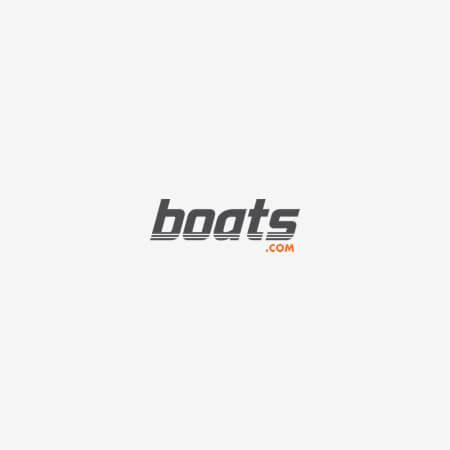A "Formula" for Rebound
Like all production manufacturers in the performance-boat world, Formula Boats has been hit hard in the past two years. But thanks to a new approach, the Porter family is bringing it back.
About 15 years ago, I wrote my first major feature for Powerboat magazine. It was a profile of Vic Porter, a former ice cream salesman, who bought a small boat company in the late 1960’s and—with his family behind him—turned it into a go-fast industry giant. That company was, and still is Formula Boats/Thunderbird Products, and no performance-boat company enjoys a greater reputation for customer service and product quality in the “production builder” niche.

No performance-boat company enjoys a greater reputation for customer service and product quality in the “production builder” niche than Formula Boats.
But reputation doesn’t pay the light bill. It doesn’t buy resin or fiberglass or vinyl or big-horsepower engines. In good economic times, reputation often makes or breaks the sale. But when nobody is buying, when consumer and dealer financing evaporate like spring rain in the desert, even reputation isn’t enough.
Of course, that doesn’t mean you stop trying, and in the case of the Porter family and Formula, it sure doesn’t mean you compromise quality or customer service. But something had to give, and for Formula it was two-thirds of the workforce at its plant and headquarters in Decatur, Ind. At full strength, Formula had 600 workers. At present, the company has 200.

In its best year, the company built 1,000 boats. This year, they'll build 300.
In its best year, the company built 1,000 boats divided among its Sun Sport, Super Sport, Performance Cruiser and FASTech performance boat lines. This year, according to Scott Porter, the chief executive officer of Formula and Vic Porter’s oldest son, the company will build about 300 boats.
Yet Scott Porter, Grant Porter, Wayne Porter, Jean Porter-Brune, Ted Porter and the five Porter grandchildren who work at Formula are grateful for where they are now. Naturally, they’d like to bring back the entire work force and build 1,000 boats a year. But so far, according to Scott Porter, they’ve seen a definite upswing in 2010.
“Things have been looking up since the first of the year,” he said. “I have to admit that before that, especially in 2009, it was pretty tough sledding. But during the winter boat shows this year we went from people being interested and looking to actually ordering new boats for the season.”
With floor-plan financing, at least from major national lenders, a thing of the past, Formula has—like all production performance-boat builders—adjusted its business model. The absence of floor-plan financing means most dealers cannot afford to buy inventory. Without dealers buying inventory—meaning boats—production dwindles. Add that to existing inventory in the field and you’re looking a boat builder’s worst nightmare.
So Formula has to a large degree gone to a retail sales model where it builds boats to order.

With no floor-plan financing available, So Formula has mostly shifted to buiding boats to order.
“We spent a good part of 2008 and 2009 right-sizing our field inventories,” said Porter. “They’re at a fairly low level right now. I would say the whole industry has done a pretty commendable job with that. As the market continues to strengthen, we’ll all have to increase levels of manufacturing. The field inventories right now are really quite low.
“A good amount of what we’re building right now is to-order, and that’s because there is a serious shortage of inventory financing,” he added. “We’ll build mostly to retail until the market comes back.”
According to Porter, inventory and consumer financing are beginning to come back at the local and even regional levels. Like financial institutions, Formula also is taking a regional approach and has opened a regional showroom in Freeport, Long Island, N.Y.
“That showroom has worked well to service our customers in that great Northeast area,” said Porter. “We leased a beautiful facility that can hold eight to ten boats and has a marina behind it.

Formula's CEO said he sees cause for guarded optimism.
“And a part of our facility in Decatur also is now a showroom,” he added.
The lay-offs at Formula were not the first for the company. Tough economic times combined with the ill-conceived luxury tax forced the company to cut its workforce in the late 1980s and early 1990s. In a rural city of less than 10,000 people, the loss of 400 jobs is substantial. That fact is not lost on anyone in the Porter family.
Scott Porter said he sees cause for guarded optimism.
“If we continue to do what we’ve done in the past 12 months, we will have to raise our production levels,” he said. “We’re holding fairly steady right now, but the next six months will still be a good challenge. The market will come back slower than everyone would like, but until the financial markets come back to whatever the new reality is going to be, it’s going to be lighter than it was.
“Our goal will be to continue to offer great buying opportunities,” he added. “That’s worked very well for us over the years.”
Indeed it has. And that, plus high-quality boats and renowned customer service on which the Porter family built the company, will help ensure that Formula is around in the future.
 Bi-weekly columnist Matt Trulio is the editor at large for Powerboat magazine. He has written for the magazine since 1994. Trulio’s daily blog can be found on speedonthewater.com, a site he created and maintains, which is the high-performance arm of the BoaterMouth group.
Bi-weekly columnist Matt Trulio is the editor at large for Powerboat magazine. He has written for the magazine since 1994. Trulio’s daily blog can be found on speedonthewater.com, a site he created and maintains, which is the high-performance arm of the BoaterMouth group.











